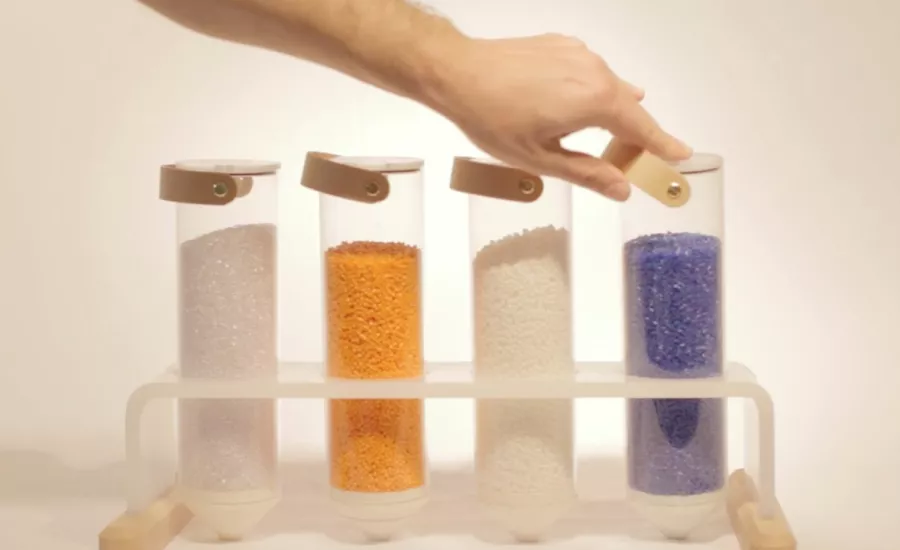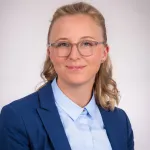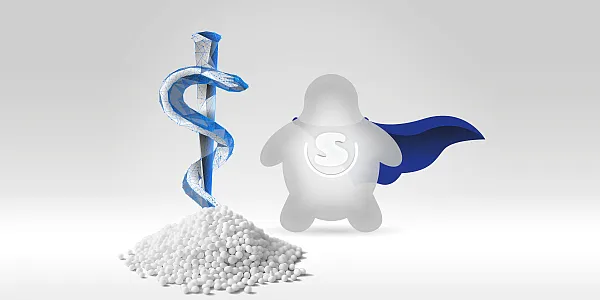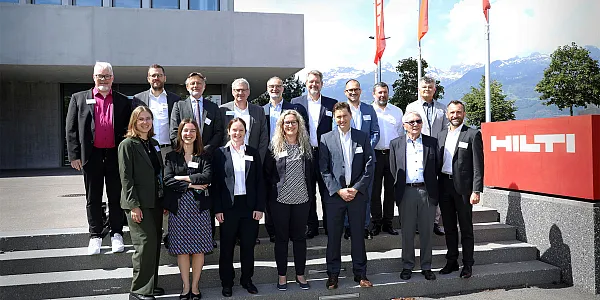3D printing also suitable for super-soft TPE compounds
Fused deposition modeling with 3D printers using thermoplastic elastomers from KRAIBURG TPE
KRAIBURG TPE has performed extensive tests to examine the suitability of its thermoplastic elastomers (TPEs) for use in additive manufacturing (AM). The tests have shown that almost all of the company’s TPEs can be processed with excellent results using fused deposition modeling (FDM) on devices from Pollen AM.
Additive manufacturing is making giant strides in changing the world of the manufacturing industry. What once was limited to prototypes is today more and more often being used for smaller quantities and spare parts, in particular. Thanks to the relatively straightforward and tool-free equipment of the devices, even sophisticated parts can be printed quickly and in the very place where they are needed. The technology provides enormous potential for significant savings of time, work and costs.
“Due to physical limitations, most classic 3D filament printers are not suitable for processing soft TPEs. In addition, it’s only possible to draw fairly limited conclusions from prototypes made of special 3D printing materials in relation to the performance of standard injection molding or extrusion compounds,” says Dr. Thomas Wagner from Product Management EMEA at KRAIBURG TPE. “The challenge we faced was to precisely analyze the prerequisites for fused deposition modeling of soft TPEs. In order to find a suitable solution, we had to learn to separate the technical limitations of the printers from those of the materials.”
The pellet additive manufacturing (PAM) system from Pollen AM, a French 3D printer manufacturer, proved to be the ideal technology. The current series of PAM granule printers produce extremely detailed surfaces even with very soft TPEs and are able to process up to four materials at the same time. In this way, typical hard–soft multicomponent composites made of TPEs in combination with plastics such as polypropylene (PP), acrylonitrile-butadiene-styrene (ABS) or polyamide (PA) are also possible.
“Our PAM printers ensure the shortest possible residence times to avoid affecting the specific advantages of soft elastomers,” explains Didier Fonta, Head of Operations at Pollen AM. “This also ensures excellent peel strength, particularly for multicomponent applications with thermoplastic elastomers in the low Shore hardness range.”
Tests performed jointly by KRAIBURG TPE and Pollen AM have resulted in convincing prints featuring mechanical properties that achieve up to 50 percent of the values shown by comparable injection moldings, depending on the process parameters. This means that the provided TPE compounds are carefully chosen and processed, so the technology is suitable for producing both demonstration samples and also functional prototypes and is thus able to reduce the costs of developing new applications.
Since almost all thermoplastic elastomers that KRAIBURG TPE has in its portfolio are potential materials for direct processing on PAM granule printers, no special compounds are needed. Additionally, all features of the materials, especially their adhesion possibilities on various thermoplastics, are maintained in 3D printing with PAM granule printers. Residues that may arise during production can be recycled in local waste streams.
About Pollen AM
Founded in 2013 and based in Ivry-sur-Seine (Paris), Pollen AM Inc. has established itself as a leading manufacturer of 3D printers for tool-free processing of plastic and metal granules. The company’s pellet additive manufacturing (PAM) printers are able to process up to four materials at the same time using fused deposition modeling (FDM), with a resolution of up to 40µ. Visit www.pollen.am for more information.
Most of KRAIBURG TPE’s thermoplastic elastomers are perfectly suitable for being processed by 3D granule printers from Pollen AM’s P series, which can also manufacture functional multicomponent parts additively using fused deposition modeling (FDM). (Image: © 2019 Pollen AM)
3D printing also suitable for super-soft TPE compounds
Fused deposition modeling with 3D printers using thermoplastic elastomers from KRAIBURG TPE
KRAIBURG TPE has performed extensive tests to examine the suitability of its thermoplastic elastomers (TPEs) for use in additive manufacturing (AM). The tests have shown that almost all of the company’s TPEs can be processed with excellent results using fused deposition modeling (FDM) on devices from Pollen AM.
Additive manufacturing is making giant strides in changing the world of the manufacturing industry. What once was limited to prototypes is today more and more often being used for smaller quantities and spare parts, in particular. Thanks to the relatively straightforward and tool-free equipment of the devices, even sophisticated parts can be printed quickly and in the very place where they are needed. The technology provides enormous potential for significant savings of time, work and costs.
“Due to physical limitations, most classic 3D filament printers are not suitable for processing soft TPEs. In addition, it’s only possible to draw fairly limited conclusions from prototypes made of special 3D printing materials in relation to the performance of standard injection molding or extrusion compounds,” says Dr. Thomas Wagner from Product Management EMEA at KRAIBURG TPE. “The challenge we faced was to precisely analyze the prerequisites for fused deposition modeling of soft TPEs. In order to find a suitable solution, we had to learn to separate the technical limitations of the printers from those of the materials.”
The pellet additive manufacturing (PAM) system from Pollen AM, a French 3D printer manufacturer, proved to be the ideal technology. The current series of PAM granule printers produce extremely detailed surfaces even with very soft TPEs and are able to process up to four materials at the same time. In this way, typical hard–soft multicomponent composites made of TPEs in combination with plastics such as polypropylene (PP), acrylonitrile-butadiene-styrene (ABS) or polyamide (PA) are also possible.
“Our PAM printers ensure the shortest possible residence times to avoid affecting the specific advantages of soft elastomers,” explains Didier Fonta, Head of Operations at Pollen AM. “This also ensures excellent peel strength, particularly for multicomponent applications with thermoplastic elastomers in the low Shore hardness range.”
Tests performed jointly by KRAIBURG TPE and Pollen AM have resulted in convincing prints featuring mechanical properties that achieve up to 50 percent of the values shown by comparable injection moldings, depending on the process parameters. This means that the provided TPE compounds are carefully chosen and processed, so the technology is suitable for producing both demonstration samples and also functional prototypes and is thus able to reduce the costs of developing new applications.
Since almost all thermoplastic elastomers that KRAIBURG TPE has in its portfolio are potential materials for direct processing on PAM granule printers, no special compounds are needed. Additionally, all features of the materials, especially their adhesion possibilities on various thermoplastics, are maintained in 3D printing with PAM granule printers. Residues that may arise during production can be recycled in local waste streams.
KRAIBURG TPE Quick Facts
- Founded in 2001 as an independent business unit of the KRAIBURG Group
- HQ & Production Site: Waldkraiburg / Germany
- Regional HQ & Production site: Kuala Lumpur / Malaysia, Atlanta / USA
- Products: Thermoplastic Elastomer Compounds
- Brands: THERMOLAST®, COPEC®, HIPEX®, and For Tec E®
- Markets: EMEA, APAC, Americas
- Employees: 660






